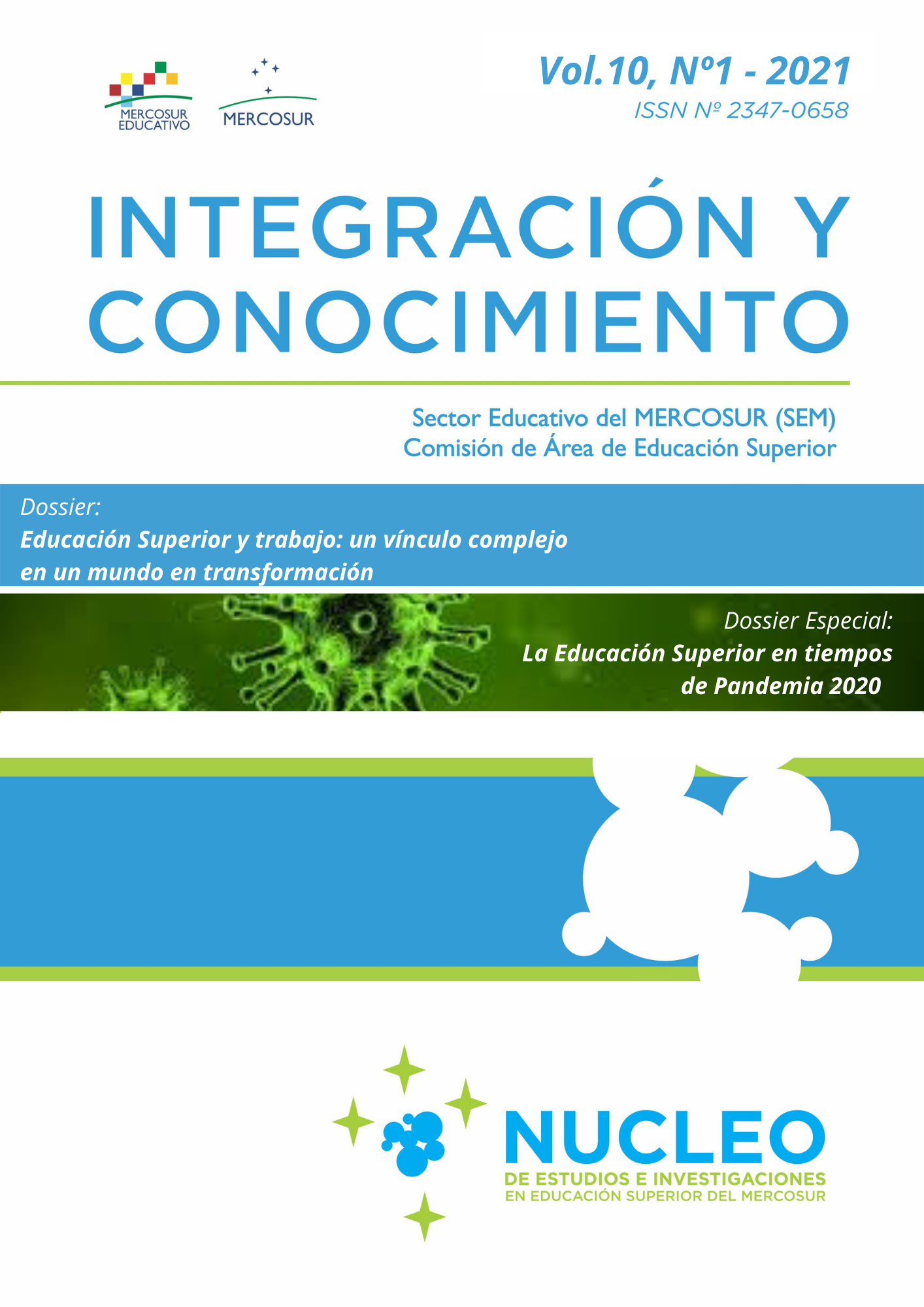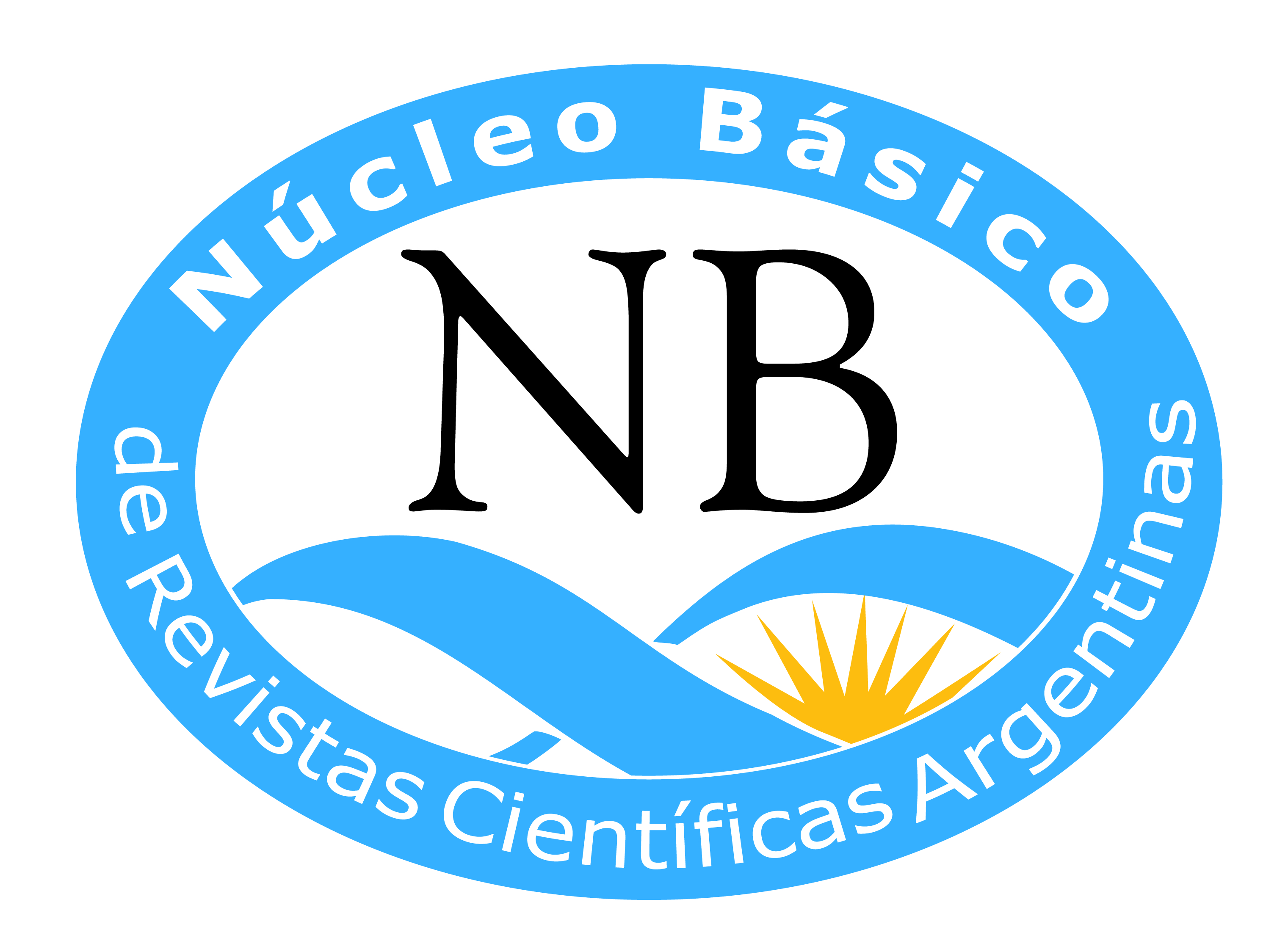PROFOUND CHALLENGES, LIMITED CERTAINTIES: THE PROFESSIONAL INSERTION OF URUGUAYAN NOVICE TEACHERS IN THE LIGHT OF COMPARATIVE EXPERIENCE
DOI:
https://doi.org/10.61203/2347-0658.v10.n1.31960Keywords:
professional insertion; novice teachers; UruguayAbstract
This article studies the relationship between higher education and work in the field of the teaching profession, focusing on the transition from initial training to work performance of secondary education teachers in the immediate years after their qualification. The article starts from the situation in Uruguay and develops a comparative view with the region, mainly Argentina and Chile. The questions that guided the research were the following: what is the reality of Uruguayan beginning teachers in the second decade of the 21st century?, to what extent do these teachers feel able to face the multiple challenges of professional insertion?, which are some of the claims regarding training?, what degree of satisfaction do these teachers experience in their teaching activities? The main findings of the study show that beginning teachers in Uruguay consider that they master both the disciplinary content and the teaching strategies, but they think that their initial training did not prepare them to teach in diverse contexts or to handle inclusion in the classroom. This aspect coincides in Uruguay and the region. In turn, beginners understand that initial training did not contribute much to their knowledge on the use of technologies in the classroom. The insertion of new teachers in diverse sociocultural contexts is viewed as a complex problem, given the institutional logic that prevails in the region, which makes their professional adaptation even more difficult.
Downloads
References
ANEP (2018). Censo Nacional Docente, Informe de Resultados. Dirección Sectorial de Planificación Educativa. Recuperado de https://censodocente2018.anep.edu.uy/censo
Aguerrondo, I. y Vezub, L. (2003). Los primeros años como maestro. Desarrollo profesional de los docentes uruguayos. Programa de modernización de la educación media y formación docente. Montevideo: ANEP – MEMFOD.
Ávalos, B. (2009). La inserción profesional de los docentes. En Profesorado. Revista de currículum y formación del profesorado, 13 (1). Recuperado de: https://recyt.fecyt.es/index.php/profesorado/article/view/41902
Ávalos, B., Carlson, B. y Aylwin, P. (2004). La inserción de profesores neófitos en el sistema educativo: ¿cuánto sienten que saben y cómo perciben su capacidad docente en relación con las tareas de enseñanza asignadas? Informe Proyecto FONDECYT 1020218. Recuperado de http://repositorio.conicyt.cl/handle/10533/162628
CES. Monitor Liceal. Recuperado de: http://servicios.ces.edu.uy/monitorces/servlet/datosdepartamentales
Cisternas, T. (2016). Profesores principiantes de Educación Básica: dificultades de la enseñanza en contextos escolares diversos. Estudios Pedagógicos, XLII (4).
Flores, C. (2014). Inducción de profesores novatos en Chile: un estudio de caso. Pensamiento Educativo. Revista de Investigación Educacional Latinoamericana, 51 (2), 41-55. Recuperado de https://pensamientoeducativo.uc.cl/index.php/pel
Gorichón, S.; Salas, M.; Araos, M. J.; Yañez, M.; Rojas-Murphy, A. y Jara-Chandia, G. (2020). Prácticas de mentoría para la inducción de docentes principiantes: análisis de cuatro casos chilenos al inicio del proceso. Revista Calidad en la Educación, (52), 12-48. Recuperado de http://dx.doi.org/10.31619/caledu.n52.824
Iglesias, A. (2018). Formación docente e inserción laboral. Los profesores principiantes en las escuelas secundarias de la CABA en el marco de las reconfiguraciones del siglo XXI. Revista del IICE/44. Recuperado de http://revistascientificas.filo.uba.ar/index.php/iice/index
INEEd (2014). Informe sobre el estado de la educación en Uruguay 2014-2015. Montevideo: INEEd.
INEEd (2017). Informe sobre el estado de la educación en Uruguay 2017-2018. Montevideo: INEEd.
INEEd (2019). Informe sobre el estado de la educación en Uruguay 2017-2018. Montevideo: INEEd.
Litwin, E. (2012). El oficio de enseñar. Condiciones y contexto. Buenos Aires: Ed. Paidós.
Mancebo, M. E. (2016). La transformación frustrada: condiciones de trabajo y carrera docente en Uruguay (2005-2014). Propuesta Educativa, 45.
Marcelo, C. (2002). Los profesores como trabajadores del conocimiento: Certidumbres y desafíos para una formación a lo largo de la vida. Educar, (30), 27-56.
Marcelo, C (1999). Estudio sobre la estrategia de inserción profesional en Europa. Revista Iberoamericana de Educación (19). Recuperado de https://rieoei.org/historico/oeivirt/rie19a03.htm
Ruffinelli, A. (2014a) Dificultades de la iniciación docente: ¿iguales para todos? Revista Estudios Pedagógicos, Xl (1), 229-242. Recuperado de http://dx.doi.org/10.4067/S0718-070520140001000
Ruffinelli, A (2014b). ¿Qué aprenden los docentes en su primer año de ejercicio profesional? Representaciones de los propios docentes principiantes. Pensamiento Educativo. Revista de Investigación Educacional Latinoamericana. Pontificia Universidad Católica de Chile, 51 (2), 56-74. Recuperado de http://pensamientoeducativo.uc.cl/index.php/pel/article/view/658
Ruffinelli, A. (2013). La calidad de la formación inicial docente en Chile: la perspectiva de los profesores principiantes. Calidad en la educación, 39. Recuperado de https://scielo.conicyt.cl/scielo.php?script=sci_arttext&pid=S0718-45652013000200005
Serra, J.C., Krichesky, G. y Merodo, A. (2009). Inserción laboral de docentes noveles del nivel medio en la Argentina. Una aproximación a partir de los egresados de la Universidad Nacional de General Sarmiento. Profesorado, Revista de Currículum y Formación de Profesorado, 13 (1), 195-208.
Solís, M.; Núñez, C.; Vásquez, N., Contreras, I. y Ritterhaussen, S. (2016). Problemas en la inserción profesional de profesores: necesidad de mentoría. Estudios Pedagógicos XLII (4). Disponible en: https://scielo.conicyt.cl/scielo.php?script=sci_arttext&pid=S0718-07052016000500012
Vaillant, D. y Marcelo, C. (2015). El ABC y D de la Formación Docente. Madrid: Narcea.
Vaillant, D. y Marcelo, C. (2001). Las tareas del Formador. Málaga: Ediciones Aljibe.
Vaillant, D. (2009). Políticas de inserción a la docencia en América Latina: La deuda pendiente. Profesorado. Revista de curriculum y formación del profesorado, 13 (1), 28-41.
Vezub, L. y Alliaud, A. (2012). El acompañamiento pedagógico como estrategia de apoyo y desarrollo profesional de los docentes. Aportes conceptuales y operativos para un programa de apoyo a los docentes principiantes de Uruguay. Uruguay: OEI.
Villegas-Reimers, E. (2003). Teacher professional development: an internacional review of the literature. Paris: UNESCO. Recuperado de http://goo.gl/eJMIkW
Downloads
Published
Issue
Section
License

This work is licensed under a Creative Commons Attribution-NonCommercial-ShareAlike 4.0 International License.
Authors who have publications with this journal accept the following terms:
a. Authors shall retain their copyright and guarantee the journal the right of first publication of their work, which shall simultaneously be subject to the Creative Commons License of Recognition which allows third parties to share the work as long as its author is indicated and its first publication is this journal.
b. Authors may adopt other non-exclusive licensing agreements for the distribution of the published version of the work (e.g., depositing it in an institutional telematic archive or publishing it in a monographic volume) provided that the initial publication in this journal is indicated.
c. Authors are allowed and encouraged to disseminate their work via the Internet (e.g. in institutional telematic archives or on their website) after publication of the article, which may lead to interesting exchanges and increased citations of the published work. (See The Effect of Open Access).



